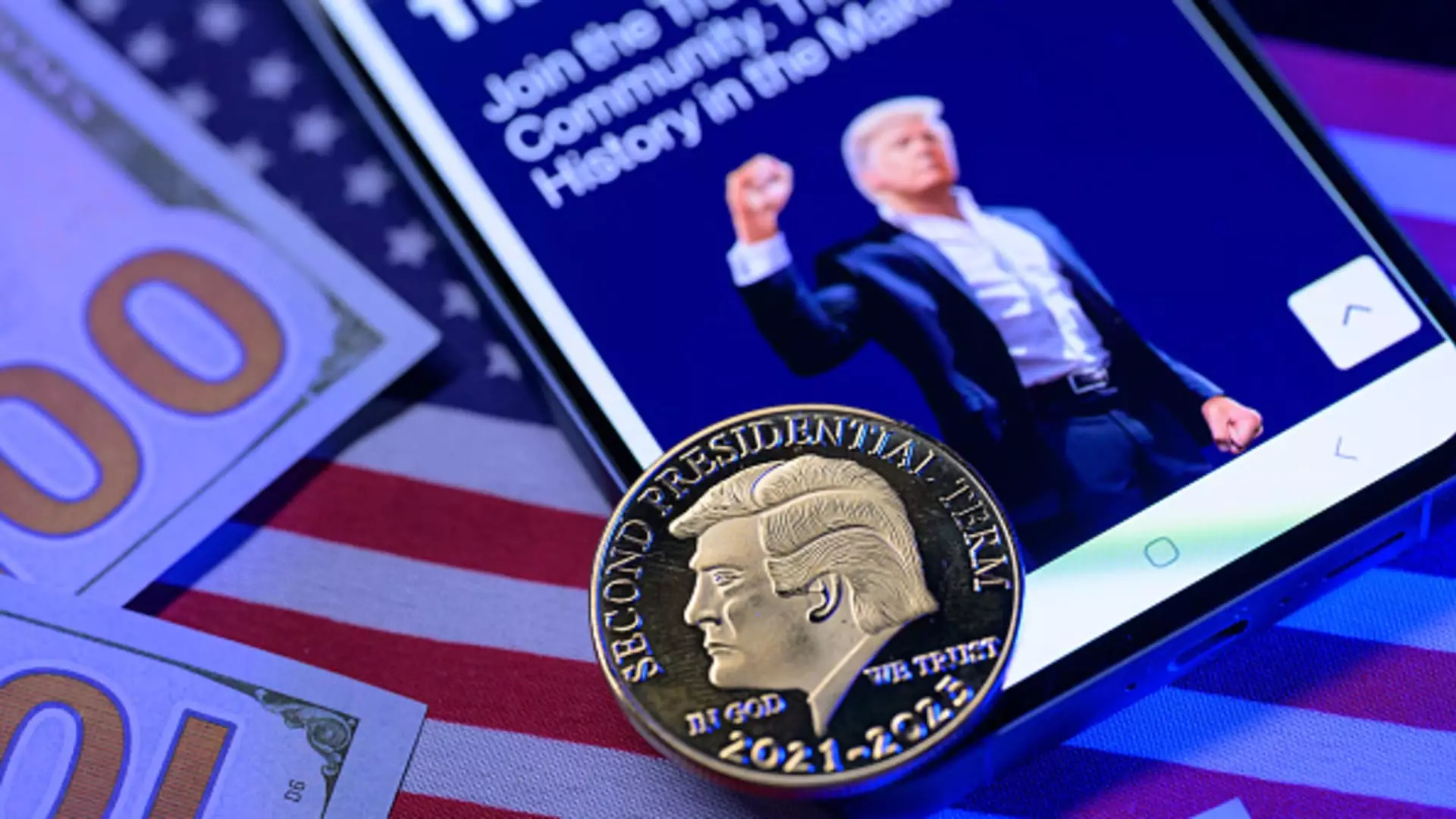The rise of meme coins in the cryptocurrency market has often circumvented traditional finance dynamics, blending cultural phenomena with speculative trading. One of the most intriguing occurrences in this landscape is the $TRUMP token, which embodies both the chaotic nature of meme-driven currencies and the allure of political celebrity. As this coin has gained traction, questions arose surrounding the identities and intentions of those who hold substantial amounts, especially with an upcoming dinner between President Donald Trump and the top $TRUMP holders. This gathering introduces a novel intersection of politics, cryptocurrency, and international interests that warrants scrutiny.
The Dinner Countdown: Who’s Who in the $TRUMP Space?
Scheduled for May 22 at Trump’s Virginia golf club, the invitation-only dinner for the leading $TRUMP holders does more than celebrate a meme coin; it casts a spotlight on its top players. As of the deadline on Monday night, the leaderboard is populated by wallets that exhibit notable anonymity, raising critical questions about the true identities of their owners. Blockchain analytics have revealed that many of the top wallets are connected to international exchanges, indicating that a significant portion of these holders may not hail from the U.S. This is particularly compelling, as the association of overseas investors with a domestic political figure leads to speculation surrounding motivations—some may view this as an opportunity for influence, while others may see it as an extension of their investment strategies.
Identities Cloaked in Anonymity
One of the central figures associated with the $TRUMP token is Justin Sun, a prominent Chinese entrepreneur linked to the Tron blockchain. With an astonishing $75 million investment in the token, Sun’s involvement speaks volumes about the internationalization of this crypto asset. Reports suggest that Sun’s wallet alone holds over $18 million in $TRUMP, further emphasizing the precarious balance of ownership in this largely pseudonymous space. Coupled with the fact that many of the top wallets are tied to non-U.S. users, this scenario presents a conundrum for regulators and offers a glimpse into positions that could inadvertently challenge political norms.
Moreover, the billionaire landscape of crypto participants such as Sun may overlook concerns regarding financial imbalances. As entities like MemeCore and other investors clamor for influence, it raises eyebrows about the potential for magnifying undesirable impacts on U.S. policy discussions, such as trade relations and international alliances. The looming threat of foreign interests embedding themselves into American political landscapes through these tokens cannot be brushed aside.
The Rollercoaster Ride of Volatility
A critical aspect of the $TRUMP token is its extreme price volatility. With a staggering $5.2 billion realized in gains by certain wallets, the experience hasn’t been uniform. Simultaneously, nearly 593,000 wallets have collectively incurred losses summing up to $3.9 billion. This stark contrast illustrates the unpredictable nature of meme coins, often influenced by social media trends or political endorsements. The announcement of the dinner saw a spike in value, underscoring how fleeting attention can manipulate market perceptions and trading behaviors.
Most strikingly, the claims of substantial wealth accumulation by a few individuals overshadow the reality for the majority of holders, leading to discussions around equity and fair participation in emerging financial systems. This scenario raises real concerns over the ethics of wealth concentration that could undermine the egalitarian aspirations of blockchain technology.
The Shift of Power and Responsibility
Further complicating matters, the Trump family’s crypto holdings have drawn criticism, particularly from Senate voices like Richard Blumenthal, who connect these assets to potential avenues for foreign and corporate interests to gain direct influence over U.S. governmental affairs. The strategy employed by companies such as Freight Technologies, which invested $2 million in these tokens to sway trade policies, exemplifies how the lines between investment, lobbying, and political influence blur dangerously in this modern monetary landscape.
As the tokens are inherently controlled by the Trump Organization and its affiliates, concerns about how these holdings can function as a backdoor for entities seeking access to leadership decisions cannot be ignored. The complexities of influence are mounting, and the attention from regulatory bodies suggests that this conversation is only beginning.
The $TRUMP token phenomenon is emblematic of the evolving relationship between cryptocurrency and politics, highlighting a need for accountability and transparency in a space that often thrives on obscurity. The upcoming dinner may signify many things—celebration, influence, or even a fundamental change in how we think about currency in relation to governance. As players like Sun and various global stakeholders maneuver through these intricate waters, one must wonder how this unique juncture of politics and crypto will shape the broader financial landscape in the years to come.

